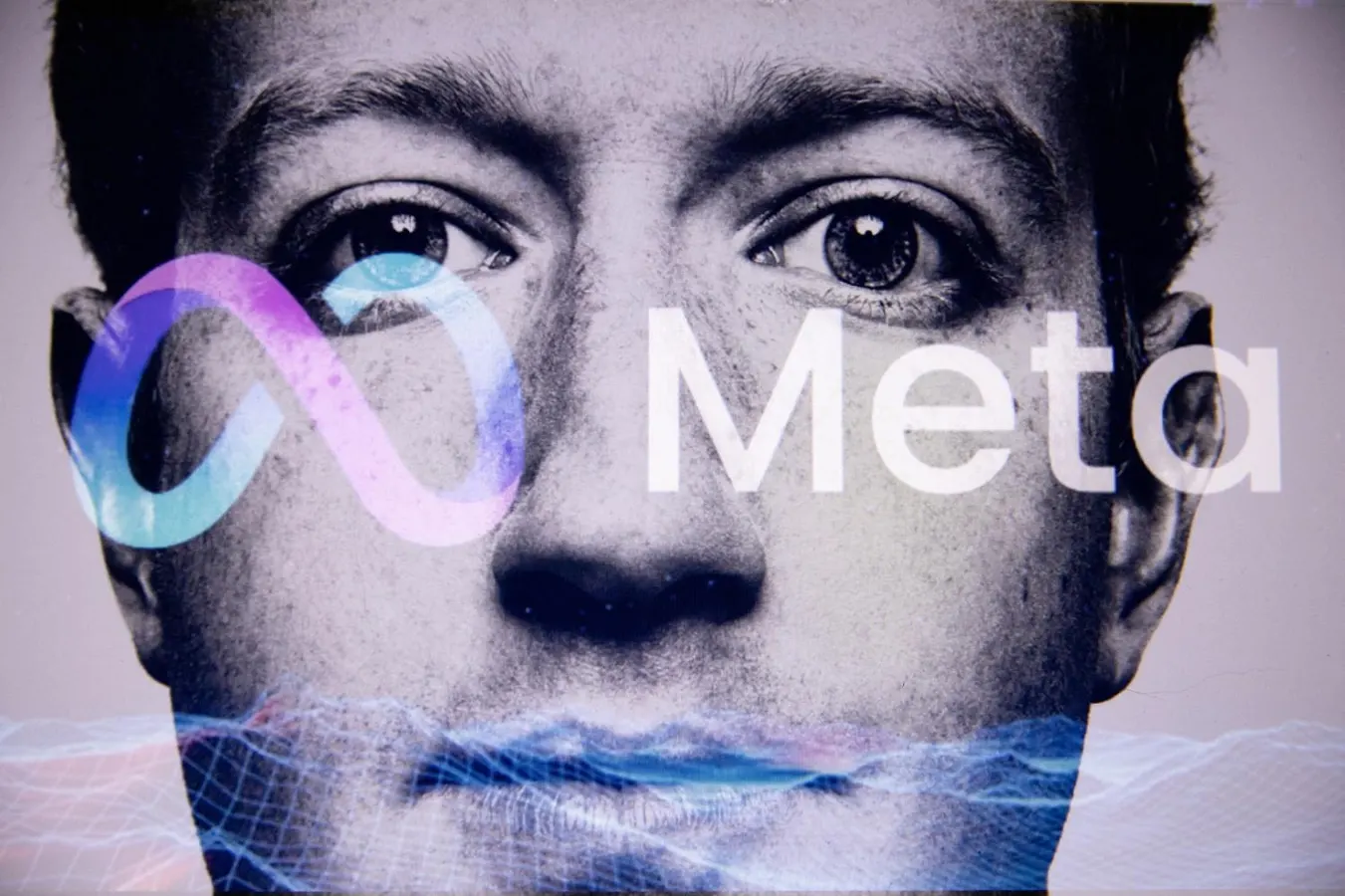Copyright forbes

After Meta layoffs, cutting hundreds from its AI division, Meta faces a question confronting every tech company: how far can efficiency go before it erases meaning? Hans Lucas/AFP via Getty Images In the middle of an AI boom, the Meta layoffs just reminded its own AI engineers that intelligence, artificial or otherwise, is no guarantee of safety. This week, the company cut roughly six hundred jobs from its artificial-intelligence division. Most observers treated it as another tremor in tech’s endless cycle of restructuring. But Meta isn’t retreating from AI, it’s doubling down. The company left its elite TBD Lab untouched, housing Mark Zuckerberg’s multimillion-dollar hires. The message is clear: humans are being re-sorted, not replaced. Somewhere inside Meta this week, an engineer who helped train an LLM is handing in her badge while her code keeps running in production. That’s the quiet paradox of the AI age: the human exits, but the machine persists. What the Meta Layoffs Reveal About Efficiency’s Endgame For years, the dominant narrative was that AI would create new, high-value jobs. The logic was simple: if you’re building the algorithms, you’re safe from them. The Meta layoffs reveal how naïve that story has become. Kyle Hollaway, Senior Vice President and Global Head of Identity at Acxiom, sees this as part of a larger gravitational pull across industries—an obsession with efficiency that overlooks the human variability companies once considered an advantage. “The current gravitational pull across industries is to drive efficiencies through the deployment of AI with little regard for the nuanced application being targeted. Humans are messy. We like to be unique, to deviate from the ‘norm’ and to challenge the status quo. Successful implementation of AI aims to normalize, standardize, and automate. Ironing out the bumps may speed the delivery of products and services, but you risk losing the variability of the human interaction. MORE FOR YOU History is repeating itself. When IVR became all the rage in customer support it replaced one annoyance (waiting on hold) with another (I just want to talk to a person). The humanity of an organization is lost as we operationalize AI. I refer to it as losing the ‘Norm Affect,’ an anecdote taken from the 90’s sitcom Cheers. People want to go where ‘everybody knows their name.’ There are specific tasks and systems where AI can be leveraged effectively, but doing so without regard for the humanity of your organization will have unexpected consequences down the line.” Hollaway’s warning reframes efficiency as a cycle rather than a breakthrough. Every wave of optimization promises progress yet quietly erodes the qualities that create loyalty, empathy, and trust. The Meta layoffs are only the latest expression of that reflex, the belief that standardization can substitute for connection. This is the psychology of a post-growth tech culture: ambition giving way to austerity. The optimism that once fueled experimentation has been replaced by risk management and defensive efficiency. Meta’s leadership framed the cuts as a move toward “fewer conversations,” with each remaining person “more load-bearing” and carrying “greater scope and impact.” That isn’t just managerial shorthand, it’s a worldview. Decision density now matters more than human diversity, output more than dialogue, speed more than depth. Efficiency has become the new morality of work. But efficiency without friction leads to sterility. When every process is optimized for throughput, what gets lost are the delays, debates, and digressions, the very moments that make human thinking worth something. Inside the Frictionless Future: When Efficiency Erases Meaning Friction has always been the hidden operating system of creativity. It slows us down just enough to think. The argument before consensus, the pause before execution—those are where judgment forms. The Meta layoffs are part of a broader pattern: an obsession with eliminating friction entirely. Whether in software, marketing, or medicine, “streamlining” has become a synonym for progress. But friction is the texture of agency. Without it, we become efficient spectators, approving outputs we no longer understand. When Meta’s memo celebrates “fewer conversations,” it might as well be saying “fewer questions.” Yet civilization advances by questions, not throughput. Friction isn’t the enemy of progress; it’s the instrument of meaning. The Real Risk Isn’t Jobs, It’s Meaning The public debate about AI and employment is too small. The question isn’t just “Will AI take our jobs?: It’s ”Will our jobs still matter when it’s done?" AI rarely eliminates roles outright; it flattens them. Decision-making migrates into models, leaving humans to monitor or “fine-tune” outcomes. The danger isn’t unemployment, it’s alienation. In Meta’s case, the new TBD Lab is being fortified as a super-intelligence think tank while hundreds of skilled engineers are told their friction is expendable. That’s not merely a reorganization; it’s a shift in the hierarchy of meaning. Those who question and explore are being replaced by those who execute and maintain. Few understand the tension between scale and humanity better than Jennifer Frieman Greenberg, Global Chief People Officer at Trailer Park Group. Drawing on two decades in talent and culture across the creative and marketing industries, she focuses on how organizations can grow without erasing the human conditions that make growth possible. As Greenberg explains: “Today, Meta and other companies are anxious to jump into this AI rush to automate what they see as inefficiencies—the time people need, the mistakes they make, the trial-and-error. But that ‘mess’ is where breakthroughs happen, and where people learn skills that allow them to have greatness in their careers. Optimizing workforces is critical in this time of change, but companies like Meta are missing the point and losing sight of a more important question. Instead of asking, How many people can we cut? they should be asking, How can we use technology to boost human performance? When you optimize only for technical skill and speed, you get more of what you already have, just faster. You lose the ability to get unexpected results. The irony for Meta is hard to miss. Their business is built on human unpredictability and difference—that’s what makes social networks work. Meanwhile, they’re reshaping their workforce to engineer out those same human qualities. If we aren’t careful, we could automate away the very struggle, learning, and purpose that make work meaningful.” Greenberg’s perspective cuts to the heart of the issue: efficiency doesn’t guarantee progress. In our rush to automate, we risk erasing the friction that gives work its purpose, the creative tension where people experiment, fail, and grow. This problem isn’t limited to tech. Across the Fortune 100–500, large corporations in insurance, manufacturing, finance, and consumer goods are making similar trade-offs. Many are quietly using AI to automate the entry-level and junior roles that once served as proving grounds for future leaders. As Liz Eversoll, CEO of Career Highways, a skills-intelligence platform, recently observed, this shift risks hollowing out the long-term talent pipeline. For decades, these companies thrived by hiring large cohorts of early-career employees, identifying the best performers, and promoting them through the ranks. The people who “grew up” inside the organization developed deep cultural understanding, loyalty, and strategic intuition. Now that automation is replacing those foundational roles, companies are undermining the very system that sustained their leadership pipelines. The cost won’t be visible in this quarter’s earnings; it will emerge years later, when organizations find themselves with scale but without stewardship. When meaning drains out of work, it doesn’t disappear; it migrates to the machine. The algorithm becomes the new author. Agency-Forward Design: Restoring Human Decision-Making If automation’s mission is to remove friction, leadership’s duty is to preserve it, intentionally. That’s what I call agency-forward design: building systems where humans retain moments of choice, curiosity, and authorship. Agency-forward design might look like a marketing AI that proposes five campaign paths—but still requires a strategist to decide which aligns with brand truth. The machine accelerates, but the human decides what matters. In business, this means workflows that still require judgment and debate. In technology, it means interfaces that invite co-creation, not blind acceptance of machine output. The Meta layoffs aren’t a corporate failure; they’re a cultural test. The companies that thrive won’t be those that automate fastest but those that preserve the most humanity inside their machines. What the Meta Layoffs Teach Companies Building Their Own AI Capabilities The Meta layoffs aren’t just a story about one company, they’re a signal for every organization racing to build its own AI stack. In fact, Forbes recently reported that “AI job cuts reached new heights in September,” underscoring just how urgent this moment is. We’ve been here before. In the 1980’s and 1990’s, many companies saw efficiency as strategy, offshoring call centers to cut costs. It looked like progress, until those same firms realized they traded away one of their most valuable assets: direct human connection. What had been dismissed as “overhead” turned out to be a relationship engine, a place where brand loyalty and lifetime value were being built one conversation at a time. The same short-term logic is creeping into AI adoption. Automation promises lower costs and faster cycles, but when organizations remove human touchpoints that create meaning and trust, they risk weakening their long-term value. Speed without substance is not efficiency, it is erosion. Smaller firms lack Meta’s computational moat or capital cushion. When they cut too deeply in the name of efficiency, they risk amputating the creative friction that drives innovation, You can’t outsource curiosity to the cloud. The temptation is to follow suit: consolidate, streamline, shrink teams, and chase “talent density.” But copying Meta’s structure without Meta’s scale is a dangerous misread of the moment. The lesson isn’t to reduce headcount; it’s to recalibrate purpose. Companies building AI capabilities should ask: Where do humans still make the difference between accuracy and insight? Which decisions should remain contested, even if that slows us down? How do we design systems that learn from friction instead of erasing it? Which decisions sacrifice lifetime value for near term speed and efficiency? Businesses that preserve interpretive roles, data strategists, ethicists, designers, translators between model and mission, will build AI programs that grow in wisdom, not just speed. Those that cut to the bone will end up with brittle automation: fast, impressive, and easily broken when the data shifts or the context changes. Meta can afford to chase speed. Most companies can’t. The best organizations will treat friction as infrastructure, not noise to be canceled out, but signal to be studied. Educating for the Post-Layoff Era The same principle applies to how we educate the next generation of builders. Dr. Davit Khachatryan, Professor of data analytics at Babson College, told me he’s already preparing his students for this new environment, one where technical mastery alone isn’t enough. “The descendants of the Age of Enlightenment should not grope in the dark, bouncing off the walls of the metaphorical ‘black box.’ Yet, illuminating the box is no trivial matter. When the scale takes over having to pause to ask ‘why’ is akin to tending the flame on a flickering candle while crossing a busy superhighway. In the age of algorithmic sameness, a data science student’s competitive advantage lies in understanding what’s under the hood of what gets dismissively stereotyped as a ‘black box.’ Curiosity—to look inside, reflective thinking—to scrutinize what is found, and creative feat—to play on it one’s raw, individual beat.” Dr. Khachatryan’s words capture the essence of what education, and leadership, must now protect: the human impulse to question, interpret, and create. The next decade of AI leadership will depend as much on moral bandwidth as on computational skill. The capacity to pause, interpret, and challenge machine output will define not just good employees, but entire cultures of innovation. Meta Layoffs and the Future of Human Value Meta’s layoffs should remind us that friction isn’t waste, it’s wisdom. It’s how humans deliberate, disagree, and design meaning together. When organizations sand down every rough edge in the name of speed, they remove the texture that makes innovation possible. The Meta layoffs make clear what’s at stake: a frictionless future that may be efficient, but ultimately empty. We can let AI take our tedium, but not our tension. Because a machine can tell you not to waste time. Only a human can tell you what makes time worth wasting. If we forget that, we risk building systems that work flawlessly, but for no one in particular. Editorial StandardsReprints & Permissions



